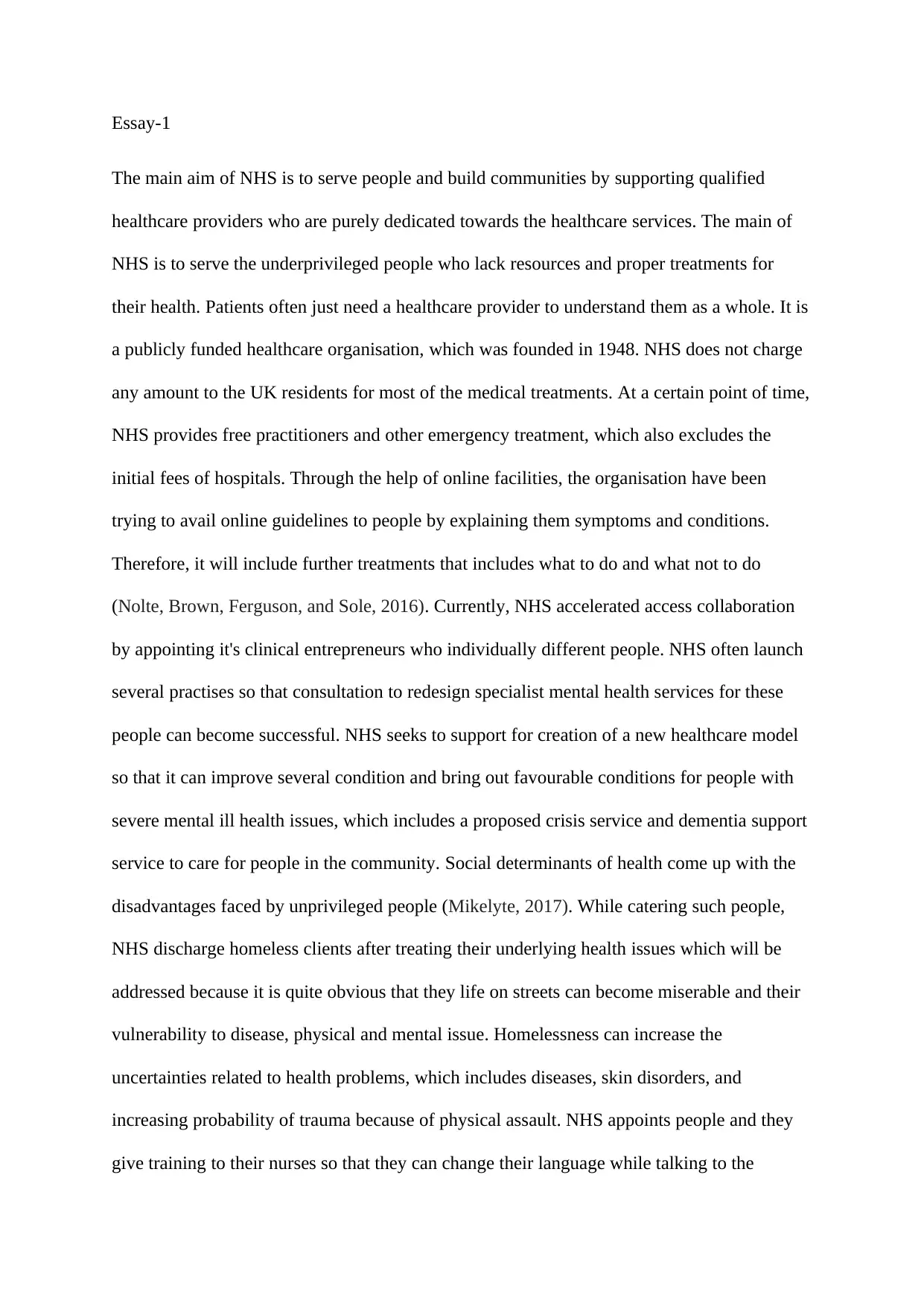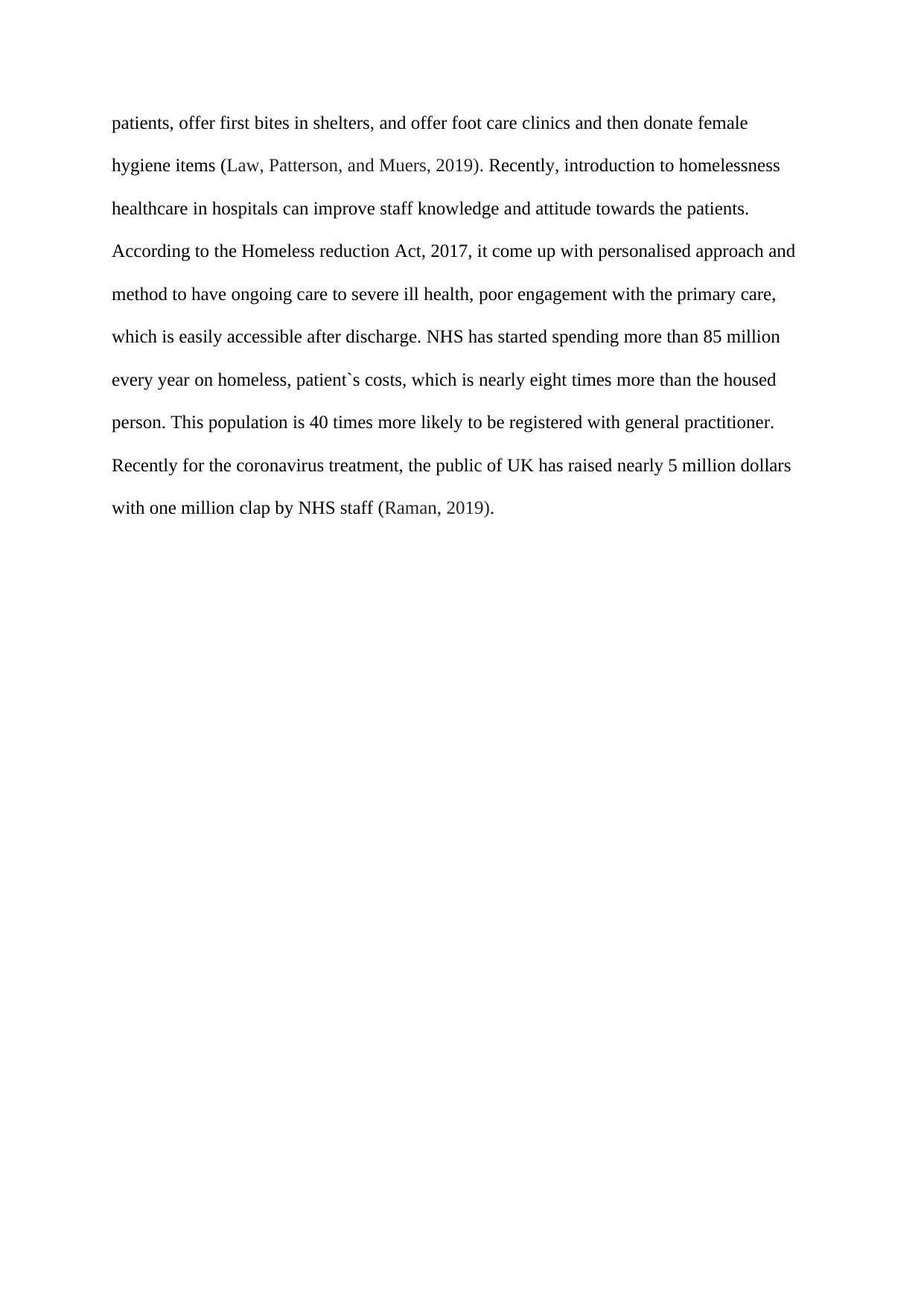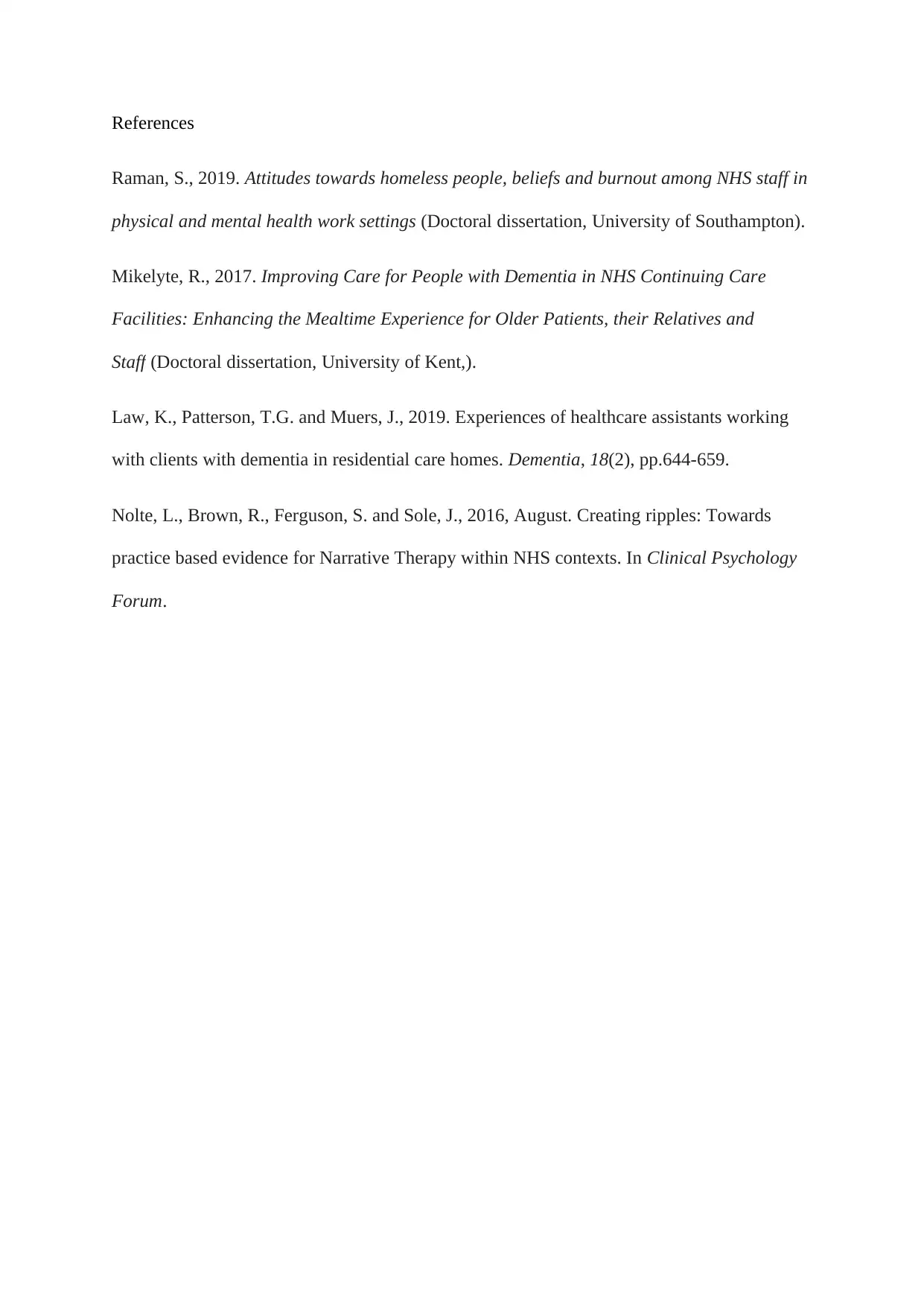Analysis of NHS Healthcare Services and Patient-Centric Approaches
VerifiedAdded on 2022/09/16
|4
|683
|15
Essay
AI Summary
This essay provides an overview of the National Health Service (NHS) in the UK, focusing on its mission to provide healthcare services, especially to the underprivileged. The essay highlights the NHS's commitment to patient-centric care, including mental health services and support for vulnerable populations like the homeless. It discusses the challenges faced by the NHS, such as healthcare access and the need for personalized care, especially for those with severe mental health issues. The essay also mentions the NHS's responses to the COVID-19 pandemic, including fundraising efforts and the impact on healthcare staff. The essay references several academic sources to support its analysis and provides insights into how the NHS is adapting to meet the needs of its diverse patient population.
1 out of 4










![[object Object]](/_next/static/media/star-bottom.7253800d.svg)